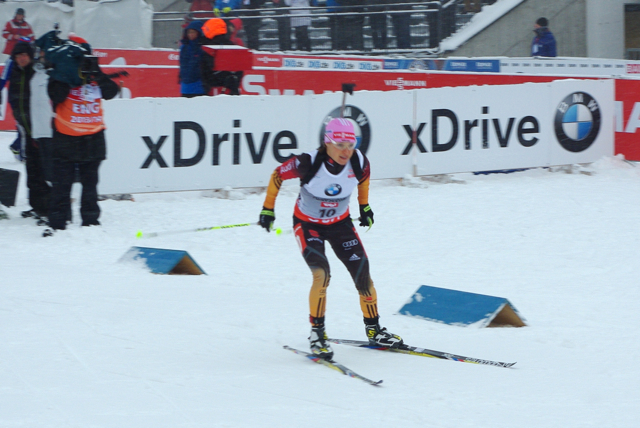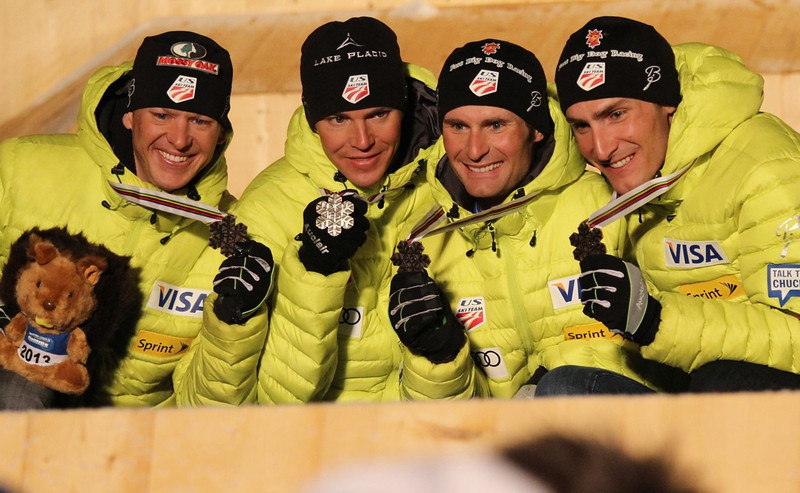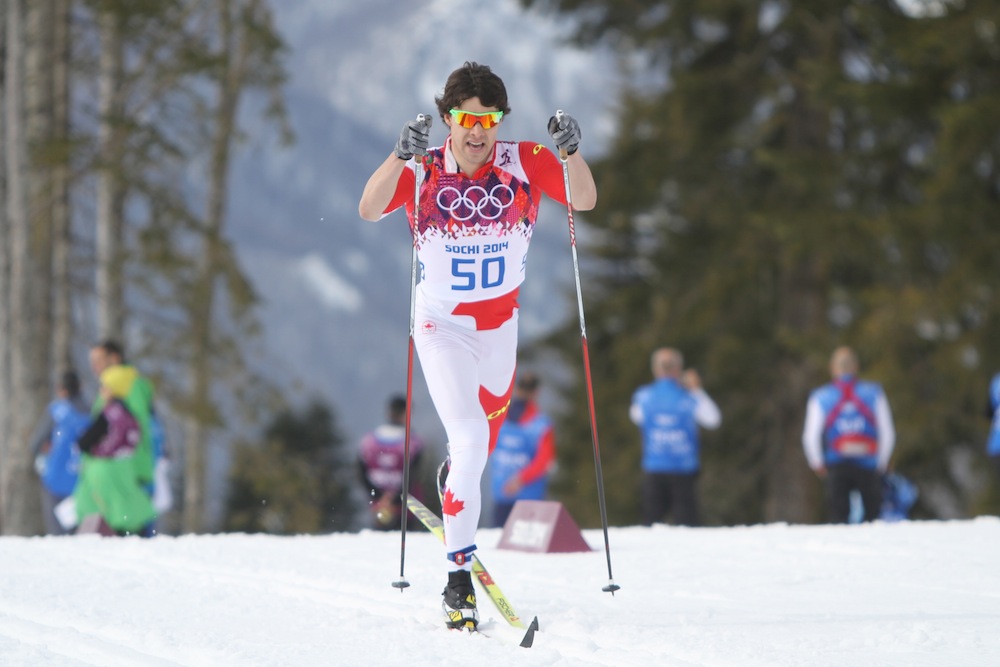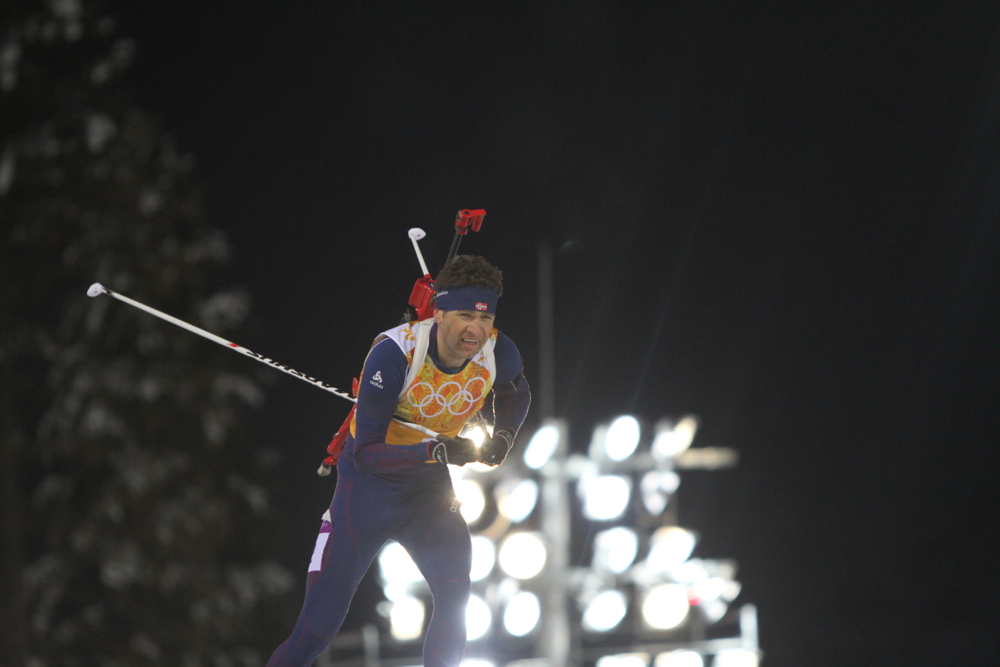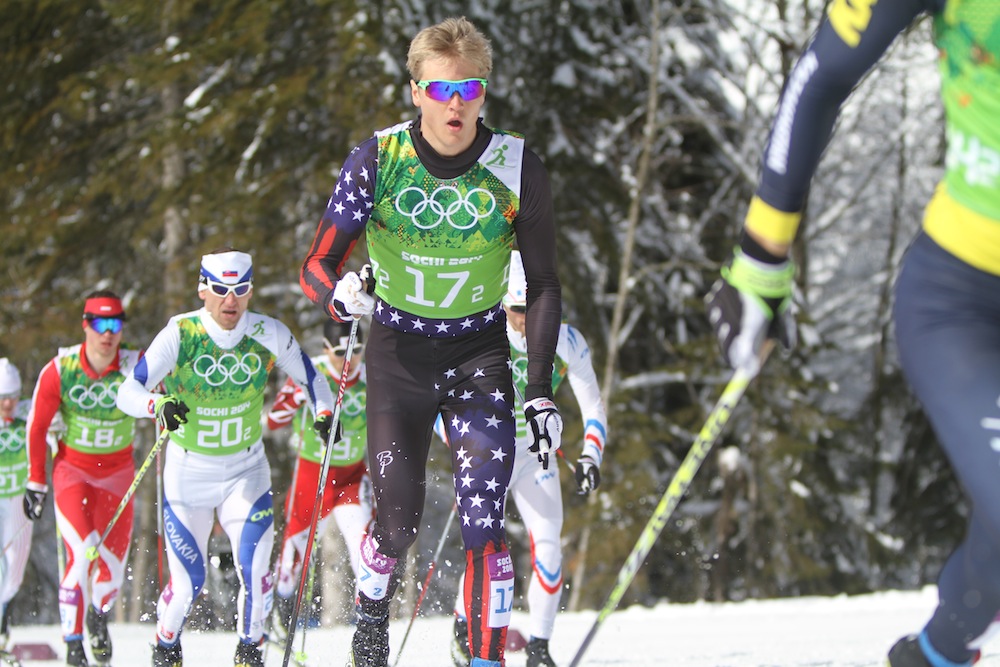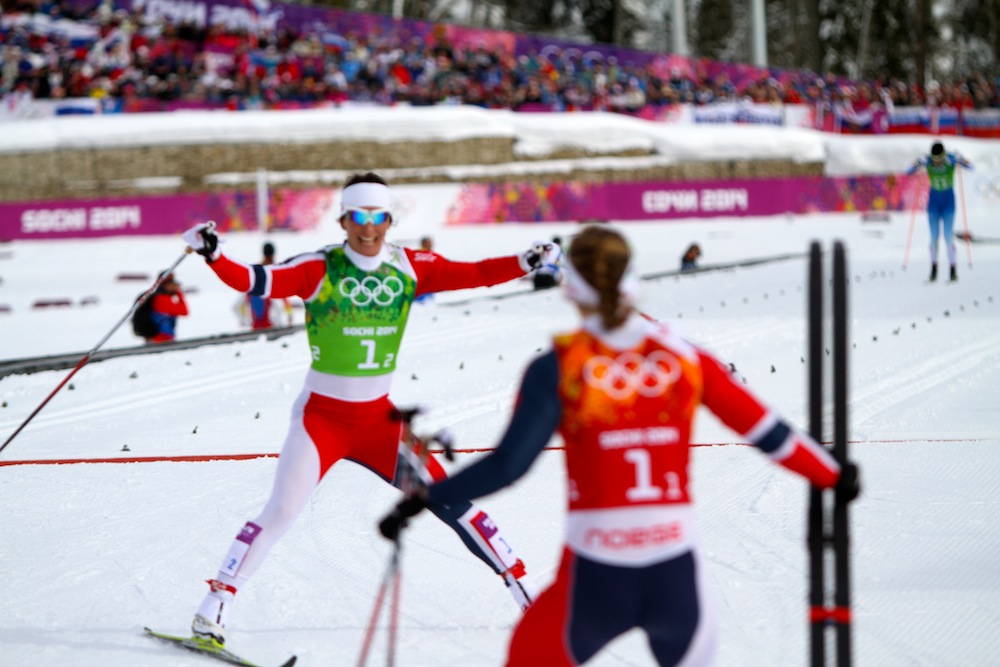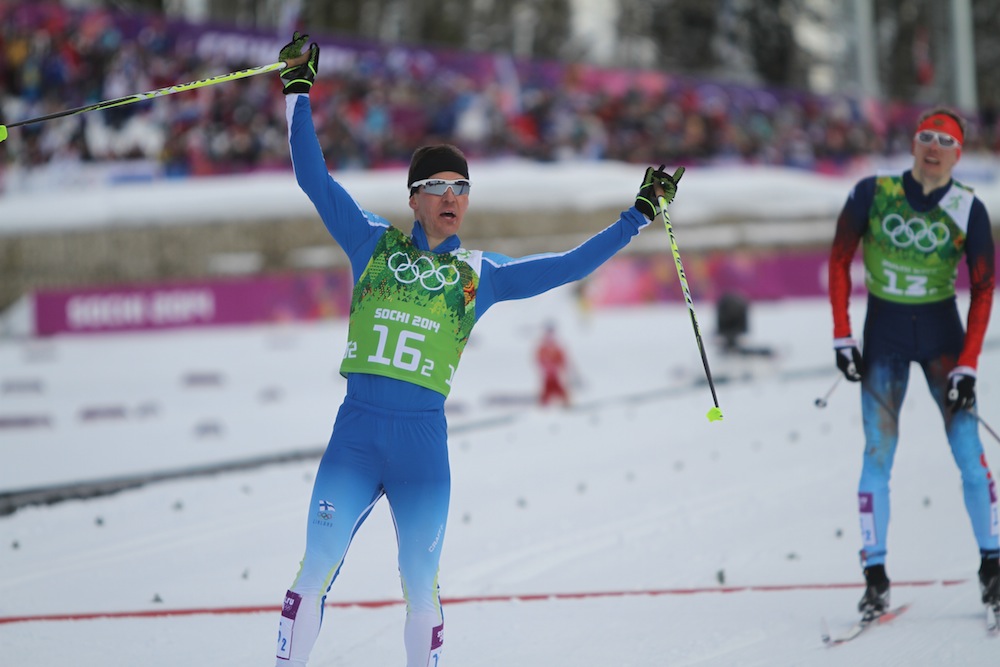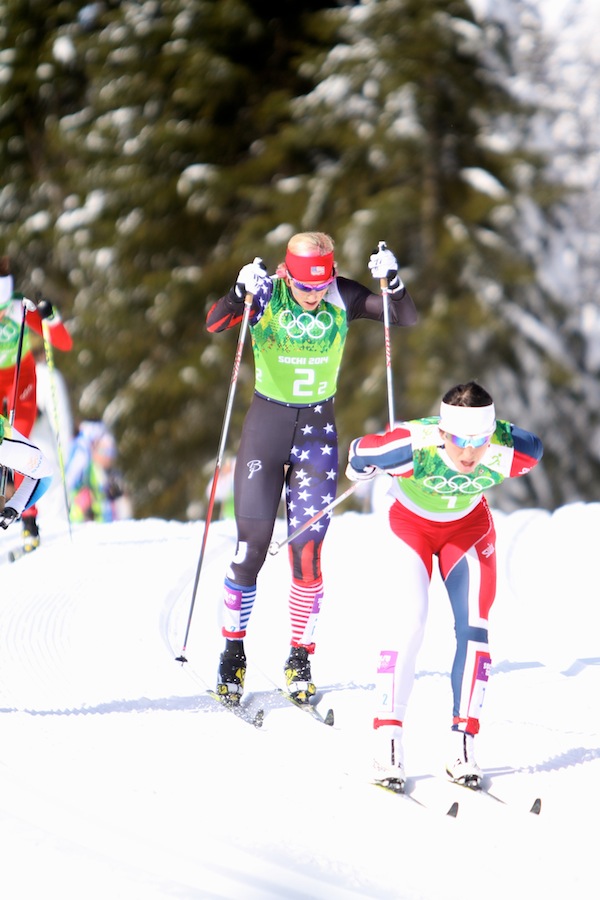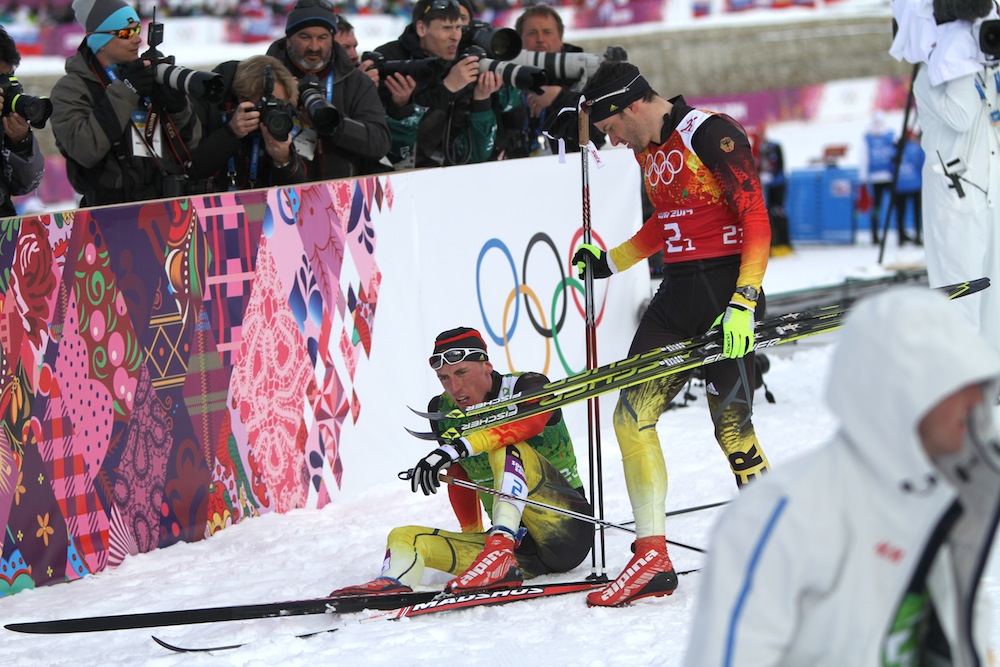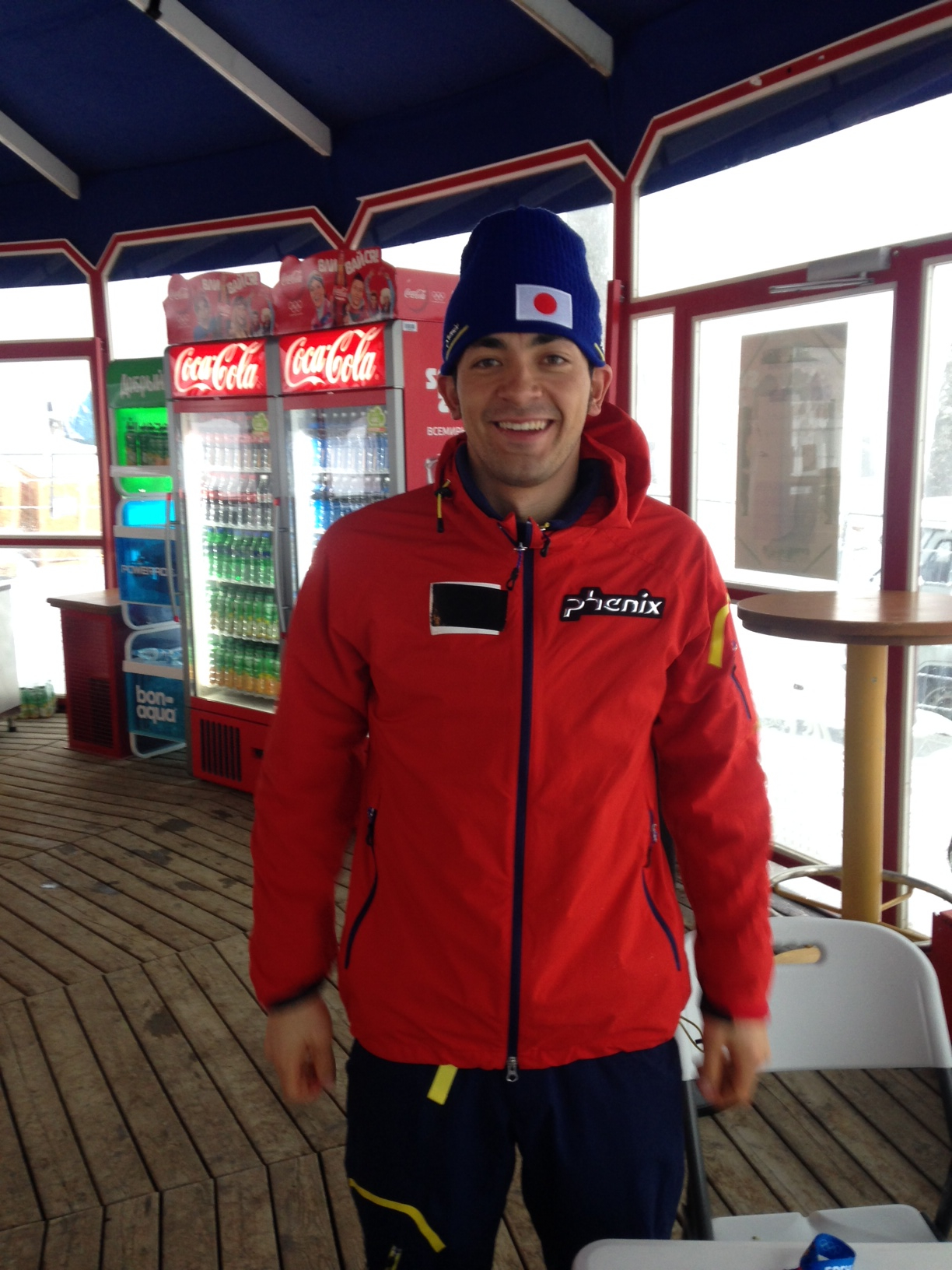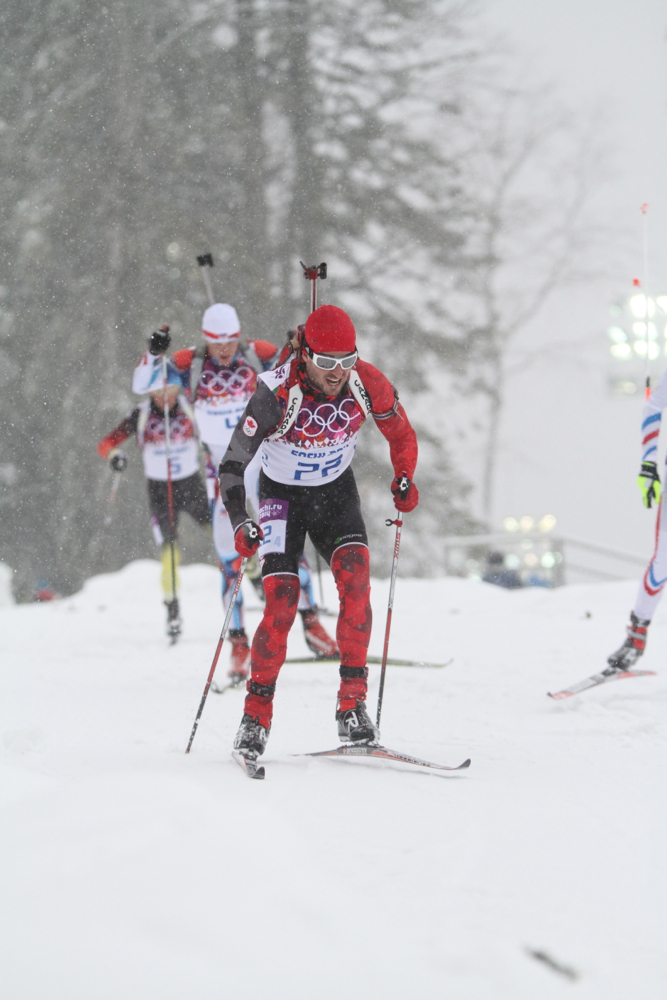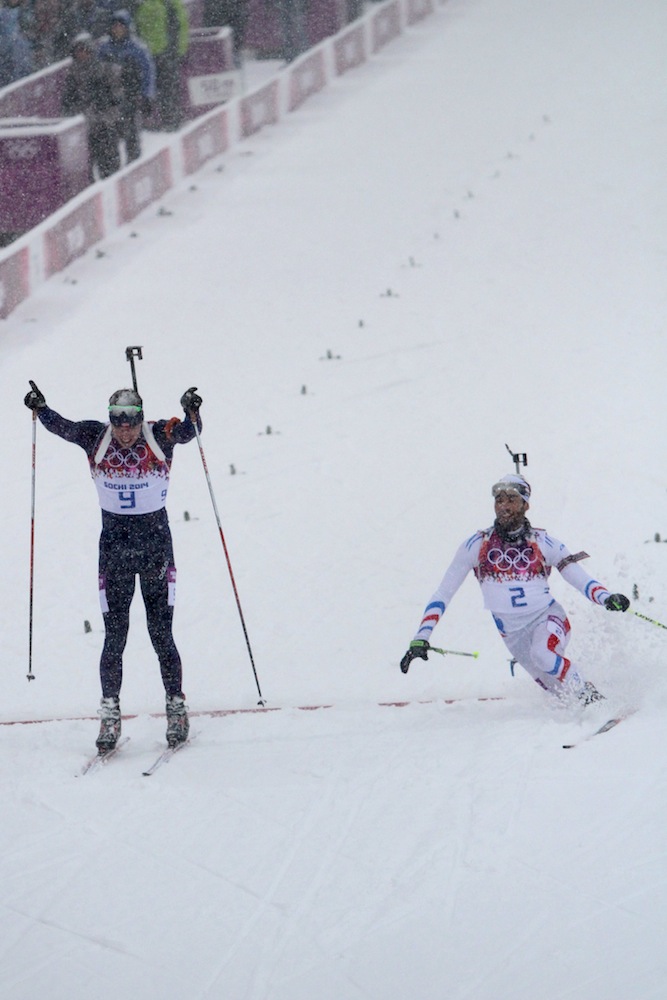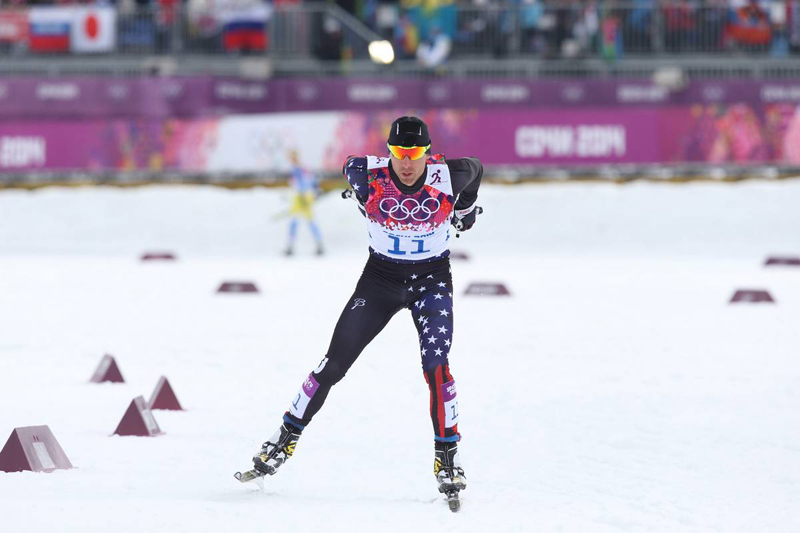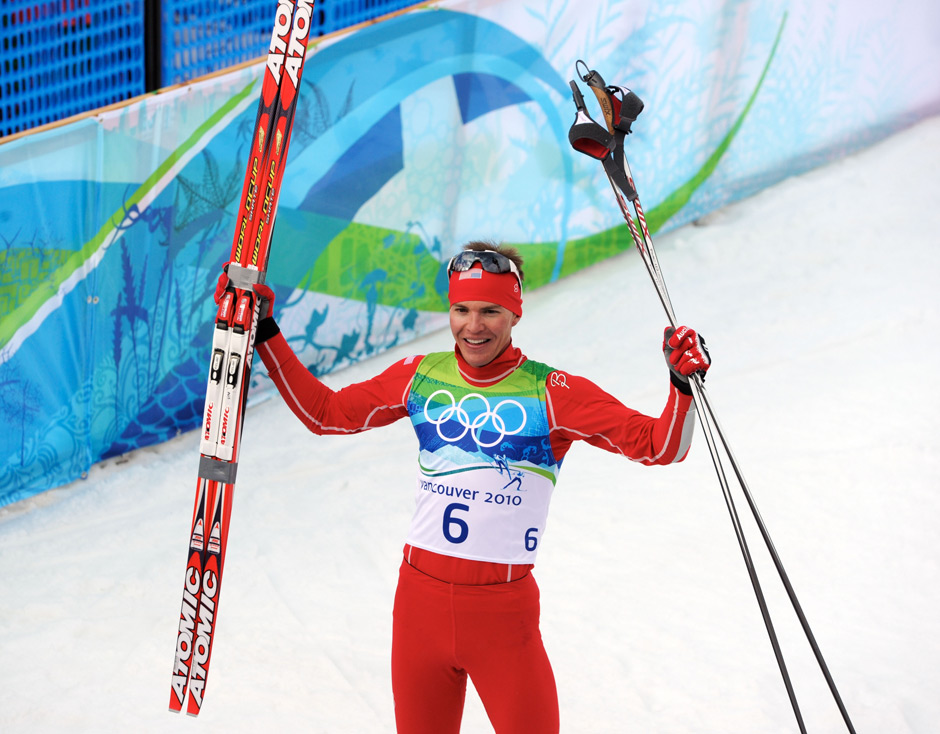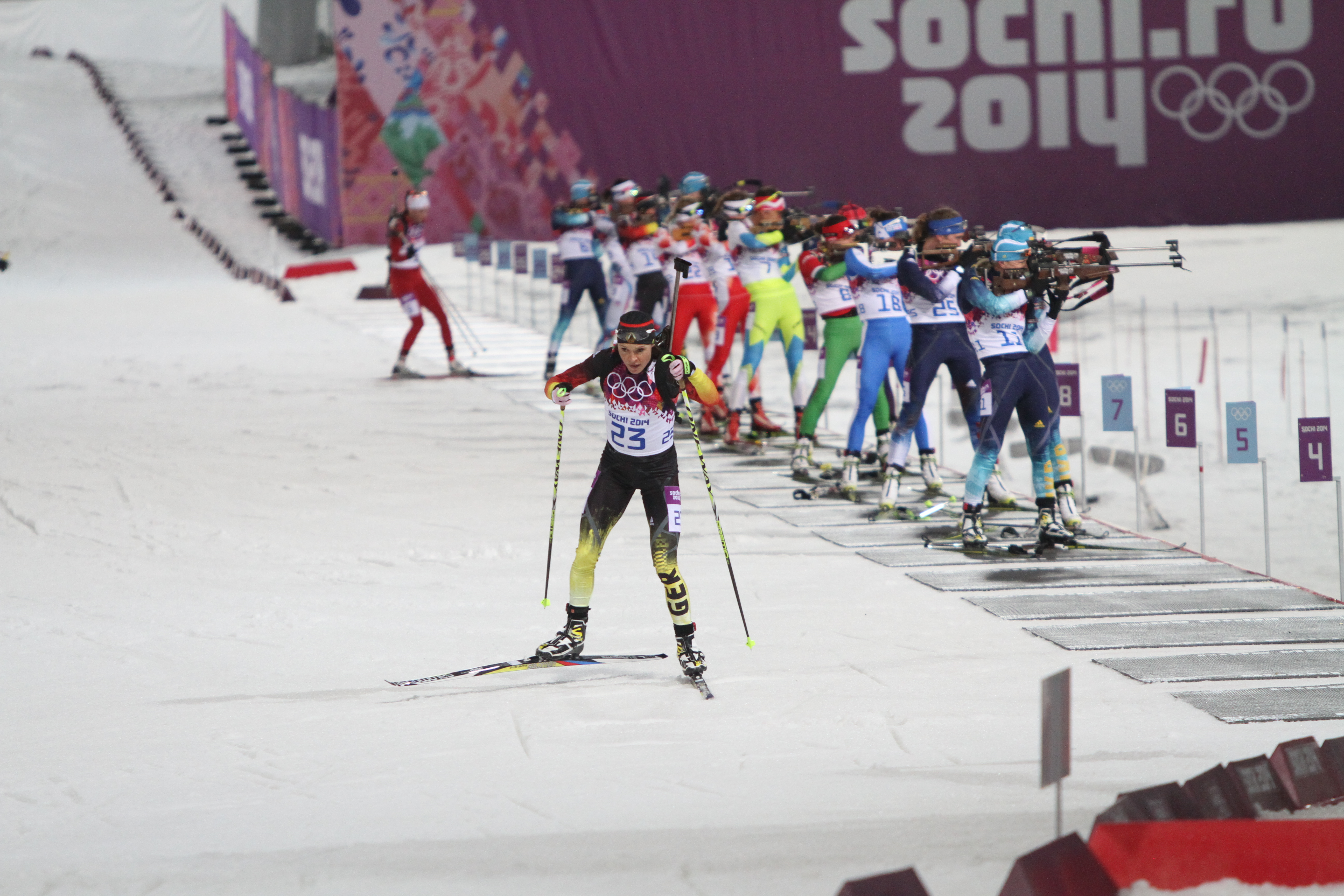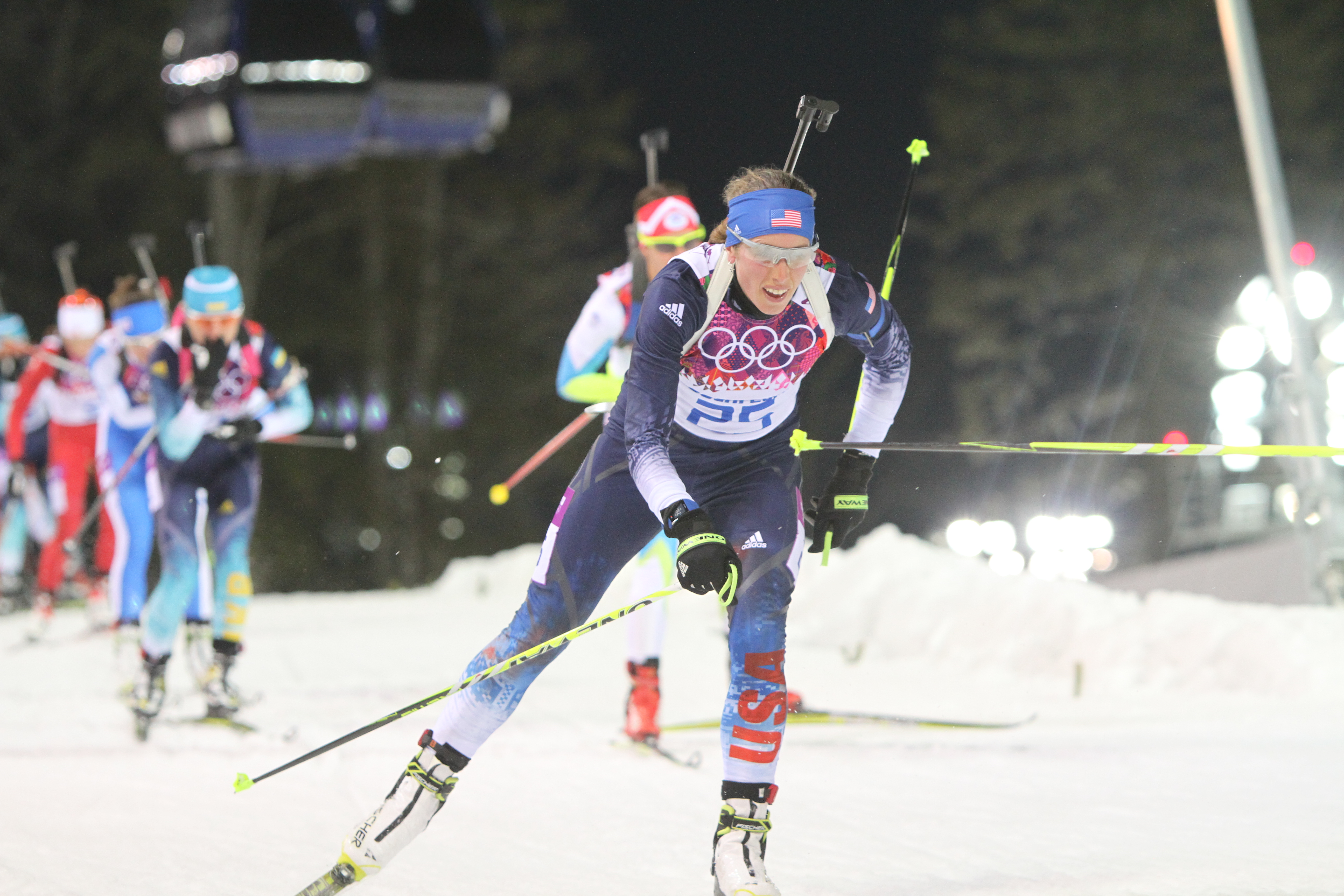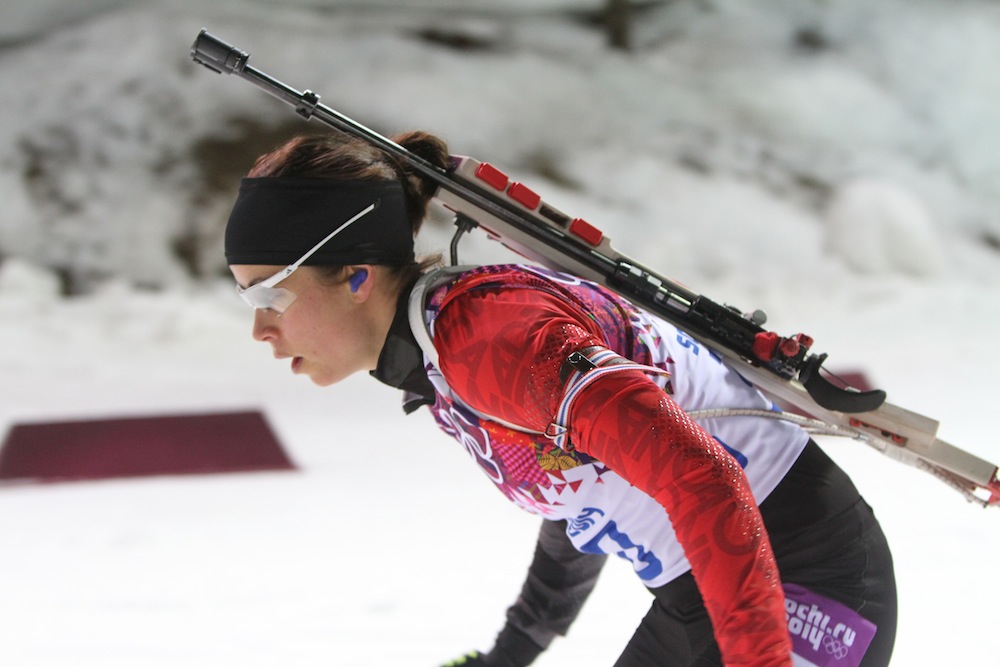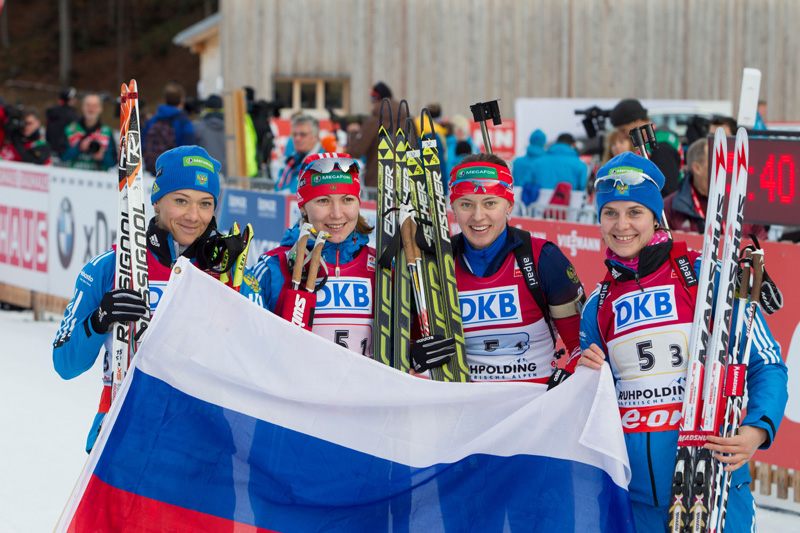German biathlete Evi Sachenbacher-Stehle, 33, has tested positive for the use of a prohibited substance, according the German news agency DPA.
HomeCategory
Olympics
Every skier’s dream. Cross country skiing on it’s biggest stage.
While U.S. Nordic Combined undoubtedly has its work cut out for its four-man team, Thursday marks the day they've been looking forward to at this Olympics: the 4 x 5 k team event.
After Classic Team Sprint Gold Three Years Ago, Canadians Get ‘Goose Egg’ in Sochi
Nathaniel HerzFebruary 20, 2014
The Canadian team sprint pair of Devon Kershaw and Alex Harvey was eliminated from the race without even qualifying for the final round. Head Coach Justin Wadsworth said: "This is the worst feeling I've had since I've been with the team."
Mixed Relay Blowout by Norway Leaves Bjørndalen Alone Atop Winter Olympic History
Chelsea LittleFebruary 19, 2014
Far from just a tourist relying on the strength of his team, 40-year-old Ole Einar Bjørndalen was integral in Norway's gold medal in the biathlon mixed relay, shooting perfectly and skiing the fastest time by a mile on his leg of the relay. He now has eight Olympic gold medals and 13 total medals, the most in history. "It's cool," the legend shrugged.
Erik Bjornsen got the call to race the Olympic team sprint after veteran Andy Newell got sick. After a huge move up the final hill in the semifinals which announced the Americans' presence in the event, Bjornsen and Simi Hamilton skied a smart race to make it around the Sochi hills and earn sixth place, a best-ever finish for the U.S. in the event.
The Norwegian women were back to their usual selves with skis to match as Ingvild Flugstad Østberg and Marit Bjørgen won the classic team sprint for Østberg's first gold, Bjørgen's fifth, and the team's first-ever team sprint win at the Olympics.
A rookie and veteran teamed up to claim a gold medal for Finland in the men's Olympic team sprint, after a finish that was marred by a crash in the lead pack.
With Caldwell & Randall, U.S. Women 8th in Olympic Classic Team Sprint, ‘Not Quite There Yet’
Alex KochonFebruary 19, 2014
After qualifying in third out of a stacked semifinal, the U.S. women's team-sprint duo of Sophie Caldwell and Kikkan Randall went on to place eighth in the final of Wednesday's Olympic classic team sprint, two places back from their previous best of sixth at the 2010 Olympics.
Wednesday's Olympic classic team sprint wasn't a good one for Germany, especially after its women narrowly missed out on a medal then its men crashed out of contention in the final stretches of the race. Germany protested a move made by the Finnish gold medalists that caused the accident, but it was rejected by jury officials.
Japan's Akira Lenting, 23, got one start at the Olympics, in the men's relay. But a bad day for the rest of his team meant that things didn't go as planned.
10ieme de sa Dernière Course Individuelle JO, Le Guellec Se Prépare Pour Son Retour et Championnats Canadiens
Chelsea LittleFebruary 18, 2014
In a French & English article, we talk to Canada's Jean Philippe Le Guellec about the final individual race of his international career: today's Olympic mass start, where he finished 10th. After the Games are over, Le Guellec will head back home to race Canadian Championships and bring his career full circle.
Ever-Confident Svendsen Secures First Gold in Sochi, Edging Fourcade: ‘It Looked Closer Than It Was’
Emil Hegle Svendsen knew exactly how Tuesday’s 15-kilometer mass start was going to play out — or so he said. The Norwegian timed his sprint showdown with France's Martin Fourcade to a T, nearly losing gold at the finish. But if you ask him, he had it in the bag.
With Two Top-Ten Finishes in Olympic Mass Start, Canadian Biathlon Proves Its Mettle
Chelsea LittleFebruary 18, 2014
Three men in the 30-racer mass start? Check. Two finishes in the top ten? Check. In a lot of ways it was a best-ever day for the Canadian men's biathlon team, but the squad was left with a slight sense of longing for what could have been. "That’s what they are disappointed about - it’s a mixed feeling because they are so close, and they know they were right there," said coach Jean Paquet.
Feeling under the weather, Andy Newell is no longer part of the American duo for Wednesday's team sprint. Instead, Erik Bjornsen will join Simi Hamilton. For the women, Kikkan Randall will keep her spot despite difficult races so far this Olympics, and Sophie Caldwell, who turned in the best U.S. women's performance ever in the individual sprint, will be her partner.
After two Americans finished in the top 30 of the first nordic-combined competition at the Sochi Olympics, the team is looking for better performances in today's large hill/10 k -- of which Billy Demong is the defending Olympic champion.
Germany’s Evi Sachenbacher-Stehle came a single second away from a bronze medal in Monday’s Olympic biathlon race, despite taking up the sport just a year-and-a-half ago.
As the first U.S. woman to ever earn a place in an Olympic mass start - which is limited to the top 30 competitors - Susan Dunklee made the most of her evening on Tuesday, skiing in the top 10 before ultimately running out of gas in the sprint finish and ending up 12th. It was still a new best mark for the American women's team.
After Last-Minute Call, Imrie Represents Canada for First Time in Women’s Mass Start
Alex KochonFebruary 17, 2014
Megan Imrie sensed there was a chance she could race Monday's Olympic biathlon mass start, but she didn't think it was a very good chance. Settled in at the athletes' village that evening, she received a call informing her that she could, 1 1/2 hours before the start. Imrie became the first Canadian woman to race an Olympic mass start, and raced the format for the first time in her career.
Domracheva Attains Hero Status in Belarus with Third Consecutive Gold
Chelsea LittleFebruary 17, 2014
By winning the women's mass start in dominant fashion, Darya Domracheva became not only a three-time gold medalist and the most successful female biathlete in Olympic history, but also a Hero of Belarus - the president made her just the 11th person to achieve such honor. Gabriela Soukalova of Czech was second and Tiril Eckhoff of Norway third - after waking up feeling sick and then eating a burger for lunch.
Biathlon’s Aggressive Testing Led to Starykh Suspension — But Is It Enough?
Chelsea LittleFebruary 17, 2014
Three biathletes were recently caught doping - but does that count as cleaning out the sport, or is it just the tip of the banned-substance iceberg? According to IBU medical director Dr. Jim Carrabre, the biathlon union has doubled their testing in the leadup to the Olympics and is using the blood passport program to aggressively target potential dopers. Some substances can't be detected, but the federation is pushing as hard as current science and WADA rules allow.

